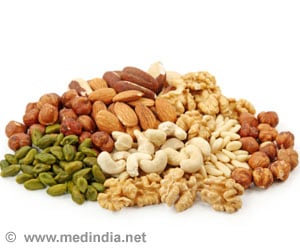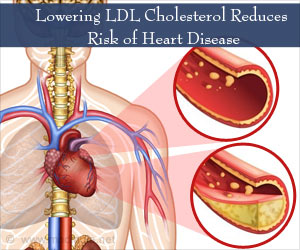A drug that helps to switch off one gene responsible for cholesterol helps in lowering the level of cholesterol and preventing heart attacks and stroke.

- Current treatment for high cholesterol includes use of statins which are associated with major drawbacks.
- New findings confirm the effectiveness of injecting inclisiran in reducing cholesterol that can be taken alone or potentially combined with statins for maximum effect.
- This technique known as RNA interference (RNAi) therapy using inclisiran, helped to lower cholesterol levels by over 51%.
Previous study had shown that a single injection of inclisiran caused sustained reductions in low-density lipoprotein (LDL) cholesterol levels over the course of 84 days in healthy volunteers.
High levels of low-density lipoprotein (LDL) cholesterol can lead to cardiovascular disease and blood vessel blockage, leading to an increased risk heart attacks and stroke in patients.
Currently the standard treatment for high cholesterol is using statins combined with exercise and healthy diet, as they reduce levels in the blood and therefore help to prevent heart attacks and stroke.
Statins are however associated with some drawbacks
- some patients report having high levels of cholesterol despite the highest dose of statins
- many patients are unable to tolerate the highest doses which need to be taken consistently
- forgetting to take them or taking them infrequently reduces the expected benefit from these treatments
Clinical Trial
These patients were either given inclisiran at varying doses, or placebo via subcutaneous injection, either via a single dose, or via a dose on day one and another at three months.
They were followed up regularly for eight months and tested for blood cholesterol and side effects.
Results in the inclisiran group:
- At 1 month-a single treatment with inclisiran, reduced the levels of LDL cholesterol by up to 51%
- At 6 months-on a single dose of 300 mg, cholesterol levels were reduced by 42%
- 48% had achieved a cholesterol level below 50 mL/dL
- cholesterol stayed low for 8 months
- no side-effects were observed
The study will follow up patients for a further four months leading to a total of one year.
Conclusion
The results show the drug acts quickly as two-weeks post-injection to reduce cholesterol levels, while also giving a prolonged effect when given in two doses over a year.
The next step is to conduct an extended study, using more patients and for a longer period of time.
Professor Ray said, "We are keen to enter the next phase of development to assess long-term safety and to see how this novel approach might translate into improvements in patient health."
Since inclisiran acts on a different biological pathway compared to statins, the two drugs would likely be combined for the best results.
Professor Ray said, "Even the single dose of inclisiran appears to lower cholesterol by 35-40% at eight months. We could essentially experiment with how often to give the drug based on levels of cardiovascular risk for each patient. Lower risk patients could in theory have once yearly injections whereas higher risk patients might have two injections a year."
He added, "The effectiveness of statins and other cholesterol-lowering treatments such as monoclonal antibodies relies on patients’ ability to take them consistently. Therefore, giving inclisiran up to twice yearly at a GP surgery, much in the same way flu vaccinations are provided, might be more effective."
More research is needed to verify the safety and effectiveness of the drug.
The results from this trial, known as ORION-1, are published in the New England Journal of Medicine, and are presented at the American College of Cardiology’s 66th Annual Scientific Session in Washington.
Reference
- Kausik Ray et al. Inclisiran in Patients at High Cardiovascular Risk with Elevated LDL Cholesterol. New England Journal of Medicine; (2017) DOI: 10.1056/NEJMoa1615758
Source-Medindia















